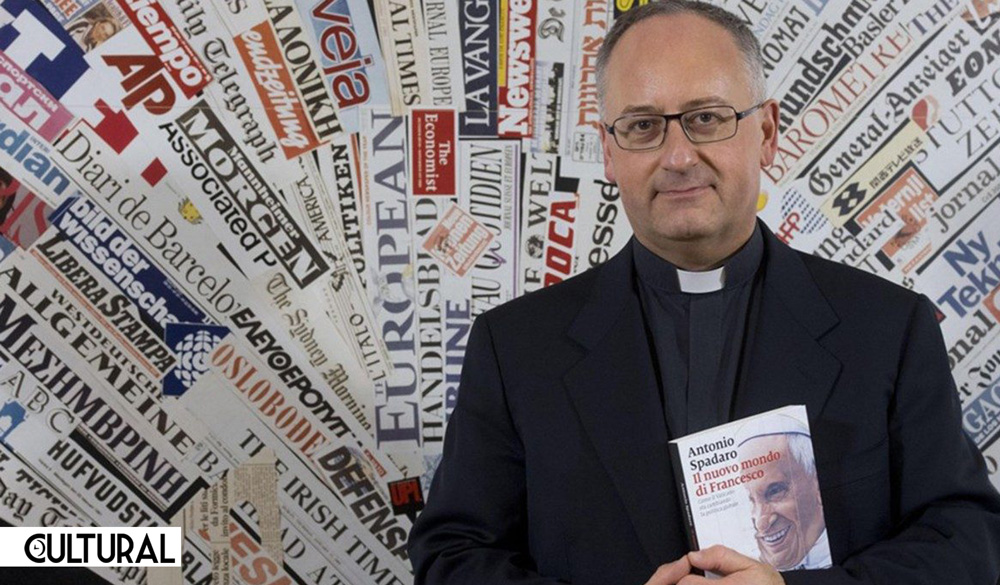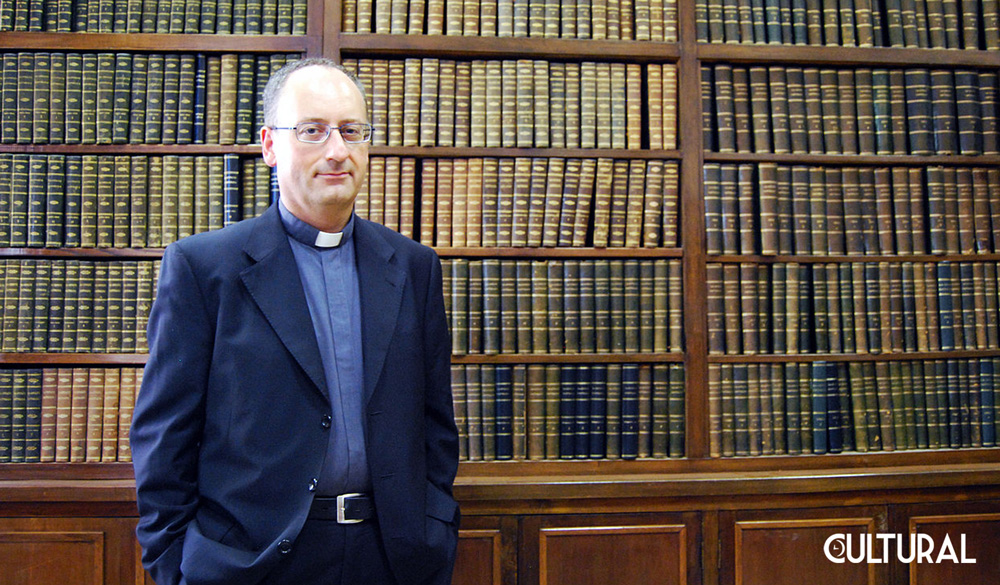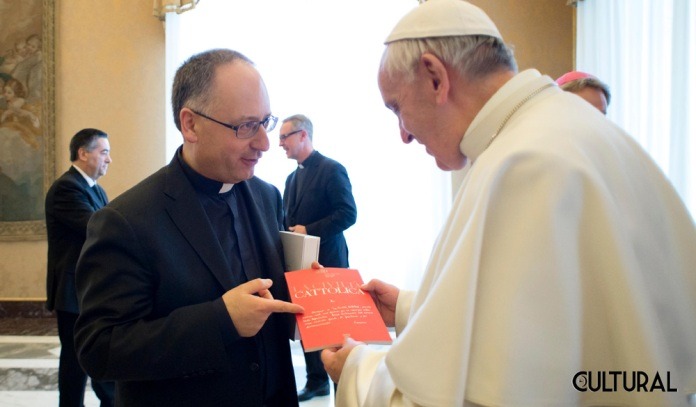| Anthony Spadaro, SJ, born in Messina (Italy), is a Jesuit. He has been a visiting professor at the Pontifical Gregorian University and since 2011 he has been director of the magazine La Civiltà Cattolica. Author of numerous books of literary criticism and theology in dialogue with contemporary culture, he has curated the Italian edition of the main documents of Pope Francis. |
Cyberspace, that world in which spirituality and technology intersect [i]
A pioneer in thinking about faith in times of the Internet, a graduate in Philosophy, a doctor in Theology, passionate about literary criticism: Father Antonio Spadaro, a Jesuit, director of La Civiltà Cattolica, escapes the labels that imprison a complex formation and a curiosity that crosses different worlds. A short time ago he published Cyberteologia. I will think about Christianity at the time of the challenge. We have asked him some questions. [ii]
How have these different worlds led you to Cybertheology?
“It is the critical reading of poetry that led me to deal with technology and that only theology is capable of giving me the right curiosity and the right categories to understand it. I have realized “on my own skin” that we inhabit language and that my house, although it is divided into rooms, is my house. Technology expresses man’s desire for a plenitude that always exceeds him, both at the level of presence and relationship, and at the level of knowledge: cyberspace underlines our finiteness and calls for plenitude. Looking for it means, in some way, working in a field where spirituality and technology intersect.”
In one of the chapters of your book, you ask if there is liturgy and sacraments on the Internet. What answer do you give?
“The meaning of participation as «taking part» in a celebration is not reducible to its psychological component or to the «excitement» in which the meaning of participation in a video game sometimes becomes. The liturgy, in fact, always “works” on the body, organizing the spheres of emotions, sensitivity, and action, in such a way that these spheres are the presence of the sacred, of the mystery of Christ. The reality of the liturgical event is never reducible to the information we have. On the other hand, it is necessary to think about the fact that “relationship machines” are transforming from substitutes to extensions of sensitivity. Even today, many affective relationships, even the most ordinary ones, are mediated by machines. The expansion of our biological senses through machines tends to assume a “normality” whereby, for example, when a cell phone has no signal, one has the impression that an important way of relating is no longer possible and one notices a sense of isolation. If reality is irresolvable in information, it is true that this allows some form of participation in the event. It is necessary to deepen this participation in the liturgical sphere, which is much more interactive and striking than pure television delight.
Hacker ethics and Christian vision: let’s start from the debate that his article in La Civiltà Cattolica aroused. Hackers have recently sabotaged Vatican sites as well…
“It hasn’t been the ‘hackers’, but the ‘crackers’, the computer hackers. The term hacker identifies a much more complete and constructive figure that was formed from the late ’60s and ’70s, linked to the evolution of computing. Hacker is the one who insists on facing intellectual challenges to act or creatively overcome the limitations that are imposed on him in his own fields of interest. Normally the term refers to computer experts, but in itself it can be extended to people who creatively live many other aspects of their lives. The hacker ethic, we can say, is a kind of “philosophy” of life, an existential, playful and committed attitude that encourages creativity and sharing, opposing models of control, competition and private property. Within this vision, the hacker ethic can even acquire prophetic resonances for today’s world focused on the logic of profit, to remember that the “human heart yearns for a world in which love reigns, where gifts are shared” , as Benedict XVI says”.
Authority, hierarchy and network: how is the hierarchical vision of the Catholic Church reconciled with a sapiential perspective extracted from the network?

“The Network, according to its nature, is founded on links, that is, on reticular, horizontal and non-hierarchical links: power and authority flow from a center to the periphery. The universal of cyberculture is also devoid of a center, as well as of univocal guidelines. The Church, on the other hand, lives with another logic, from a message donated, received, which “pierces” the horizontal dimension from above and lives from an authorized witness, from tradition, from the Magisterium. It is necessary to understand the grammar of the Internet and the articulations of authority in a fundamentally horizontal, shared, decentered context, which calls on each one to assume their own responsibilities and their own task in knowledge. How is it possible? The category and praxis of the testimony appear as determining factors. Today the man of the Network trusts the opinions in the form of testimony. The Church on the Net is called not only to a “dissemination” of content, but to a “testimony” in a context of broad relationships.
Doesn’t the use of Twitter restrict thought, as one intellectual recently said?
“It is not necessary to confuse brevity and precision with restriction. It is necessary to value the attempt to take what is essential and to say it with precise words. In this perspective, we can consider, for example, the antiphons of the Psalms as essential condensations of deep content that, even sometimes, extensive treatments are not capable of exhausting. And so also the litanies and ejaculations, the “Words of Life” devised by Chiara Lubich, and all similar initiatives that draw a Gospel piece to focus attention on the whole Gospel, but starting from a precise point. The Christian spiritual tradition indicates a way so that communication via Twitter does not end in a kind of impoverishment of human complexity. This path consists of combining wisdom and precision, through which the synthetic expression does not detract from the depth and slowness of assimilation, but rather provides the hook for a more acute and dense meditation.[iii]
[i] Interview by Vittoria Prisciandaro for the monthly magazine Jesus.
[ii] Translation from the Italian original: Carlos Romero
[iii] Font:


